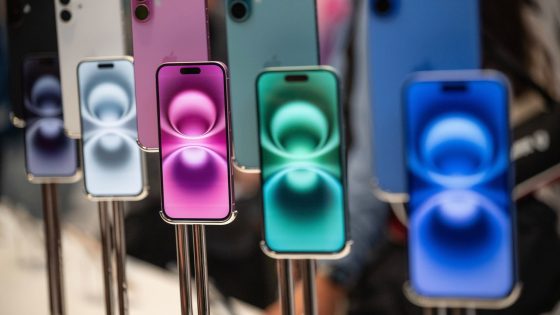On February 26, 2025, Apple announced it will address a troubling bug in its iPhone dictation feature. Users reported that when they dictated the word “racist,” the device often transcribed it as “Trump.” How could such a glitch slip through quality checks?
- Apple addresses dictation bug issue
- 'Racist' transcribed as 'Trump'
- Multiple news outlets report on the glitch
- Apple pledges to fix the transcription error
- User concerns about voice-to-text accuracy
- Impact on public perception of Apple products
This issue has raised eyebrows and sparked discussions about the implications of AI in voice recognition technology. Apple’s commitment to fixing this bug is a step toward ensuring accuracy and sensitivity in its products.
Apple’s Dictation Bug: A Challenge for Voice Recognition Technology
Why does a simple dictation feature cause such a stir? This incident highlights the challenges tech companies face in developing reliable voice recognition systems. As AI becomes more integrated into daily life, accuracy is paramount. Users expect their devices to understand context and nuance, especially with sensitive terms.
Understanding the Impact of AI on Voice Recognition
Voice recognition technology is becoming increasingly prevalent in our lives. However, glitches like this one can undermine user trust. Here are key points to consider:
- AI must accurately reflect user intent.
- Context matters in voice commands.
- Trust in technology is crucial for widespread adoption.
- Companies must prioritize ethical AI development.
What Users Can Expect from Apple’s Fix
Apple’s response to this dictation bug is critical for its reputation. Users can expect a software update that addresses this issue. The company is likely to enhance its algorithms to ensure that sensitive words are transcribed accurately. This fix will not only improve user experience but also restore confidence in Apple’s voice recognition capabilities.
The Future of Voice Recognition Technology
As voice recognition technology evolves, companies like Apple must navigate challenges like bias and accuracy. The future will likely see more advanced AI systems that better understand context and user intent. Will these improvements lead to a more seamless interaction between humans and machines?
In conclusion, Apple’s commitment to fixing the dictation bug is a positive step forward. As technology continues to advance, ensuring accuracy and sensitivity will be vital for building trust with users. The outcome of this situation could set a precedent for how tech companies handle similar issues in the future.

































